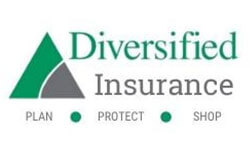Can You Borrow from a Life Insurance Policy?
Table of Contents
Can You Borrow from a Life Insurance Policy?
Life insurance policies are often viewed as a safety net for loved ones in the event of an untimely death. However, many policyholders may not realize that these financial instruments can also serve as a source of liquidity during their lifetime. One of the most intriguing features of certain life insurance policies is the ability to borrow against the cash value. This article delves into the intricacies of borrowing from a life insurance policy, exploring the types of policies that allow for loans, the process involved, and the implications of such borrowing.
Understanding Life Insurance Policies
Life insurance can be broadly categorized into two main types: term life insurance and permanent life insurance.
Term Life Insurance
Term life insurance provides coverage for a specified period, typically ranging from 10 to 30 years. If the insured passes away during this term, the beneficiaries receive a death benefit. However, term policies do not accumulate cash value, meaning there is no option to borrow against them.
Permanent Life Insurance
Permanent life insurance, on the other hand, includes various types such as whole life, universal life, and variable life insurance. These policies not only provide a death benefit but also build cash value over time. This cash value can be accessed through loans, making permanent life insurance a more flexible financial tool.
The Cash Value Component
The cash value of a permanent life insurance policy is a savings component that grows over time, often at a guaranteed rate. This growth is tax-deferred, meaning policyholders do not pay taxes on the gains as long as the money remains within the policy.
How Cash Value Accumulates
Cash value accumulation occurs through premium payments. A portion of each premium goes towards the cash value, while the remainder covers the cost of insurance and administrative fees. Over the years, as premiums are paid, the cash value grows, providing a potential source of funds for the policyholder.
Accessing Cash Value
Policyholders can access the cash value through withdrawals or loans. While withdrawals reduce the cash value and death benefit, loans allow the policyholder to borrow against the cash value without immediate tax implications.
Borrowing Against Cash Value
When a policyholder borrows against their life insurance policy, they are essentially taking a loan from the insurance company using the cash value as collateral.
Loan Terms and Conditions
The terms of the loan, including interest rates and repayment schedules, vary by insurer. Typically, the interest rates on these loans are lower than those of traditional loans, making them an attractive option for policyholders in need of cash.
Repayment of Loans
Repayment of the loan is not mandatory while the policyholder is alive. However, any outstanding loan balance, including accrued interest, will be deducted from the death benefit if not repaid. This means that beneficiaries may receive less than the full death benefit if the loan is not settled.
Advantages of Borrowing from a Life Insurance Policy
Borrowing against a life insurance policy offers several benefits that can be appealing to policyholders.
Tax Advantages
One of the most significant advantages is the tax treatment of loans. Since the IRS considers loans against life insurance policies as debt rather than income, policyholders do not incur tax liabilities on the borrowed amount.
Flexible Use of Funds
The funds obtained through a life insurance loan can be used for various purposes, including:
- Emergency expenses: Covering unexpected medical bills or home repairs.
- Investment opportunities: Funding a business venture or purchasing real estate.
- Education costs: Paying for tuition or other educational expenses.
No Credit Check Required
Unlike traditional loans, borrowing against a life insurance policy does not require a credit check. This can be particularly beneficial for individuals with less-than-perfect credit histories.
Disadvantages of Borrowing from a Life Insurance Policy
While there are advantages, there are also potential drawbacks to consider when borrowing against a life insurance policy.
Impact on Death Benefit
As mentioned earlier, any outstanding loan balance will reduce the death benefit payable to beneficiaries. This can be a significant concern for policyholders who wish to leave a substantial legacy.
Interest Accumulation
Interest on the loan accrues over time, and if the loan is not repaid, it can compound, leading to a larger debt. This can create a situation where the cash value is depleted, potentially resulting in the policy lapsing.
Policy Lapse Risk
If the cash value falls below a certain threshold due to unpaid loans and interest, the policy may lapse. This means the coverage would end, and the policyholder would lose both the insurance protection and any accumulated cash value.
Alternatives to Borrowing from a Life Insurance Policy
For those hesitant to borrow against their life insurance, several alternatives exist.
Personal Loans
Personal loans from banks or credit unions can provide the necessary funds without impacting life insurance policies. However, these loans may come with higher interest rates and require credit checks.
Home Equity Loans
Homeowners can consider tapping into their home equity through a home equity loan or line of credit. This option typically offers lower interest rates but puts the home at risk if payments are not made.
Retirement Accounts
Some retirement accounts, such as 401(k)s, allow for loans against the balance. However, this can impact retirement savings and may have tax implications if not repaid.
When to Consider Borrowing from a Life Insurance Policy
Deciding whether to borrow against a life insurance policy requires careful consideration of individual circumstances.
Financial Emergencies
In times of financial distress, borrowing from a life insurance policy can provide quick access to funds without the lengthy approval process associated with traditional loans.
Investment Opportunities
If a policyholder identifies a lucrative investment opportunity, borrowing against the cash value may provide the necessary capital to seize the moment.
Education Expenses
For parents looking to fund their children’s education, accessing cash value can be a viable option, especially if other funding sources are limited.
Conclusion
Borrowing from a life insurance policy can be a strategic financial move for those with permanent life insurance. While it offers unique advantages such as tax benefits and flexible access to funds, it is essential to weigh these against the potential risks, including the impact on the death benefit and the possibility of policy lapse. As with any financial decision, consulting with a financial advisor can provide valuable insights tailored to individual needs and circumstances.




